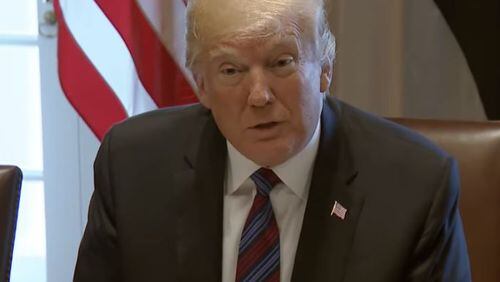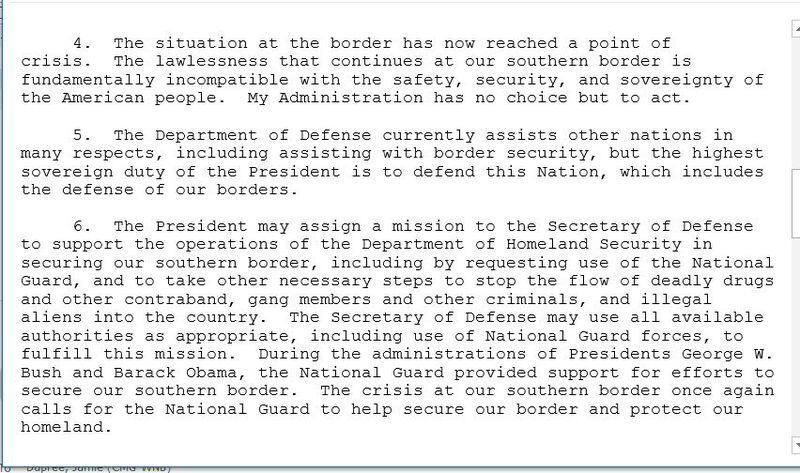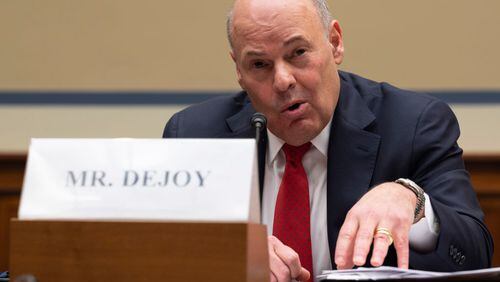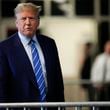As President Donald Trump signed a proclamation on Wednesday to authorize the use of the National Guard to help stem the tide of illegal immigration across the Mexican border, Trump administration officials acknowledged that the big 2017 decline in the number of people trying to enter the U.S. has clearly ended, and that illegal border crossings from Mexico are again surging.
"As of last April we were at historic lows," a senior administration official told reporters on Wednesday, noting what had been labeled, the "Trump Effect," as fewer people tried to enter the U.S. illegally soon after Mr. Trump had taken office.
"We are no longer at that point," the official added, saying there had been a "significant uptick in traffic," which was described on a conference call as a "staggering increase from last year."
Border officials say March 2018 had a 37 percent increase in the number of people coming across compared to February - but a 203 percent increase when compared to March 2017.
Credit: Jamie Dupree
Credit: Jamie Dupree
The March figure of 50,308 was the largest single month of illegal border crossings since Mr. Trump became President.
Those increases, and the lack of action by Congress on immigration legislation, were two of the reasons why Mr. Trump decided to authorize the use of the National Guard, though the exact details had not yet been worked out with the Governors of California, Texas, New Mexico and Arizona.
"The situation at the border has now reached a point of crisis," read a proclamation signed by the President, authorizing more military support along the border.
"My Administration has no choice to act," Mr. Trump wrote, citing similar National Guard deployments during the Bush and Obama Administrations.
While officials said the option of using the National Guard had been under consideration for "awhile," the Wednesday afternoon announcement by Homeland Security Secretary Kirstjen Nielsen lacked a number of key details, as in how many troops, where they would be deployed, for how long, and at what cost.
"It will take time to have the details in place, but we are beginning today and we are moving quickly," said Nielsen.
The announcement came a day after the President had vowed to use the military at the border, an effort that has been tried before with the National Guard, in 2005 by President Bush, and 2010 by President Obama.
"We expect personnel to be on the border quickly, but at this time, we don't have a date," a senior administration official said after the announcement.
Credit: Jamie Dupree
Credit: Jamie Dupree
Republicans in Congress praised the move.
"This is a critical step to providing the safety this nation has long demanded," said Rep. Michael McCaul (R-TX), the GOP Chairman of the House Homeland Security Committee.
"For too long, illegal aliens have exploited weak laws to gain de facto permanent legal status at great cost and damage to American taxpayers," said Rep. Mo Brooks (R-AL).
Democrats denounced the plan.
"This is a stunning waste of military resources," said Rep. Salud Carbajal (D-CA).
"I stand with New Mexico families and businesses who oppose Trump's offensive effort to militarize the border and build an obscenely expensive and ineffective wall in our backyard," said Sen. Tom Udall (D-NM).
Administration officials also said they plan to aggressively push Congress to pass immigration legislation which would make it easier to deport people who arrive in the U.S. illegally.
"Our expectation will be for rapid action on that legislation in the House and Senate," said another administration official.
But as was demonstrated in March, when the Senate failed to approve an immigration plan paired with action on DACA and illegal immigrant "Dreamers," the President's immigration plans have been short on votes in Congress.
Still, officials made clear that Mr. Trump is not going to drop the matter after sending some National Guard forces to the southern border.
"I would expect that in the spring and summer, the issue of border security is probably going to be one of the biggest issues on Congress's plate," the official added.









